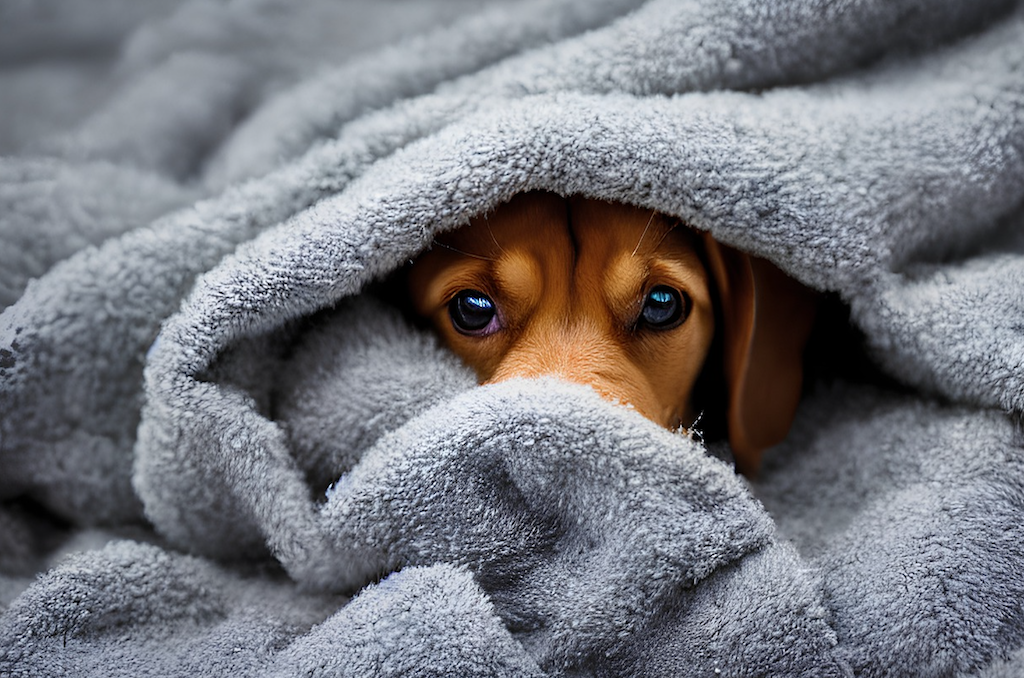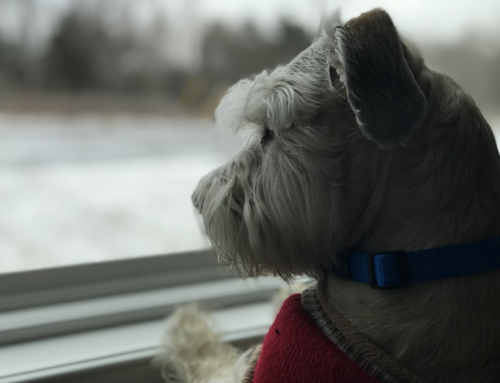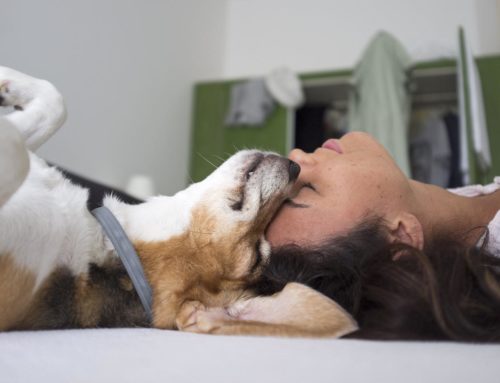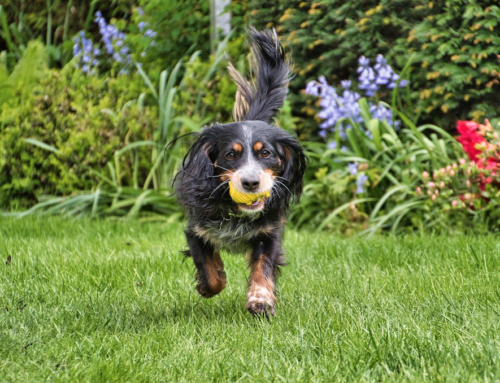
Why are dogs scared of loud noises?
For a pet parent, you know the signs of anxiety and stress in your dog. Heavy panting, whining, pacing back and forth, shaking, or running into a closet or under the bed to get away from whatever is scaring them. It can make you feel absolutely helpless.
Some of the biggest triggers for dogs are loud noises. Loud bangs of thunder and fireworks going off all day can make a dog absolutely frazzled. If this is the case for you, you’re not alone. In fact, one-third of dogs have noise aversion.
Thankfully, there are tips and tricks that pet parents can use to help make stressors easier to handle for their dogs.
Dogs have better hearing
Why is it that some dogs are afraid of loud noises? For one, they have better hearing than humans. According to the American Kennel Club, adult humans cannot hear above 20,000 Hertz. Meanwhile, dogs can hear up to 65,000 Hertz. Dogs can also hear soft sounds with ease that we would never notice. They also have the ability to differentiate between sounds. For example, your dog can distinguish your car’s motor and a strangers’, which is why they are excited when you pull up to the driveway and more guarded when a strange car parks in front of the house.
While these are great traits for our dogs’ ancestors as they searched for prey, their excellent hearing means that loud sounds like fireworks and thunder can be unbearable.
It’s important to note that every dog is different and they will react to stressors in their own way. For some dogs, thunder and fireworks are simply a nuisance and they’ll barely perk up their ears. There are different theories as to why some dogs have noise sensitivity and others don’t, including how exposed they were to loud noises as puppies, breed, aging, and their personality.
Ways to soothe an anxious pet
Fireworks and thunderstorms can be frightening for dogs with noise sensitivity. There are many ways that a pet parent can help alleviate stress and anxiety in their dog. Since each dog is different, it may take a few tries to figure out what works best.
Tap into their inner wolf and provide them with a cozy den where they feel safe. Some dogs like to hide in a closet or their crate when they’re afraid, and adding soft blankets and turning out the lights can help them relax. Some pet owners swear by anxiety vests, which puts pressure on their body to help them relax.
Adding background noise can also help make the sudden clap of thunder or fireworks less scary. Turn on the television to a happy show, play white noise, or try classical music.
Some dogs react to stress by being destructive. Think of it like a person anxiously biting their nails or tearing up tissue paper. Instead, redirect their behavior to toys that will distract them. Lick mats help them focus on lapping up their favorite snacks, chew toys can keep them busy, or soft toys they can cuddle and lick for comfort.
In some cases, medication may be necessary to help your pet get through loud noises. There are many anti-anxiety medications for dogs on the market, and they can be especially helpful for situational anxiety. You may notice that many of these medications are also used for humans. Before giving your pet any sort of medication, talk to your veterinarian to discuss if it’s a good fit for your dog.
Remember, for dogs who are scared of loud noises, they are not destroying things or having an accident in the house out of defiance or to seek attention. They are genuinely afraid. It’s OK to give them loving pets and reassure them that they’re OK with soothing words.
Dealing with loud holidays
For many pets, the Fourth of July and New Year’s Eve are holidays to dread. Both include loads of fireworks, and even leading up to and after the holidays your neighbors light off fireworks to get the party started early or to finish off their stash of poppers. Since dogs have better hearing, these noises can sound like a bomb is going off over and over again.
Some animals react to stress and fear by running away, so the American Veterinary Medical Association reminds owners to make sure their dogs have an up-to-date tag on their collar, are microchipped, and don’t have a way of getting out of the house. Even the calmest dog can become frightened of fireworks if they’re outside at a party with you, so it’s best to leave them in the safety of your home.
Owners can plan around the impending noise. Consider going for a long walk before the festivities to tire them out. Take them out on a potty break and feed them dinner earlier than normal; this way they’re less likely to have an accident in the house, especially if they need to go potty, but are too scared to go outside due to the noise.
Now that you have a better understanding of why your dog is afraid of loud noises, it will be helpful in your search for a solution that works for everyone. Holidays don’t have to be stressful when you have the right tools to help your pet get through anxious situations.




